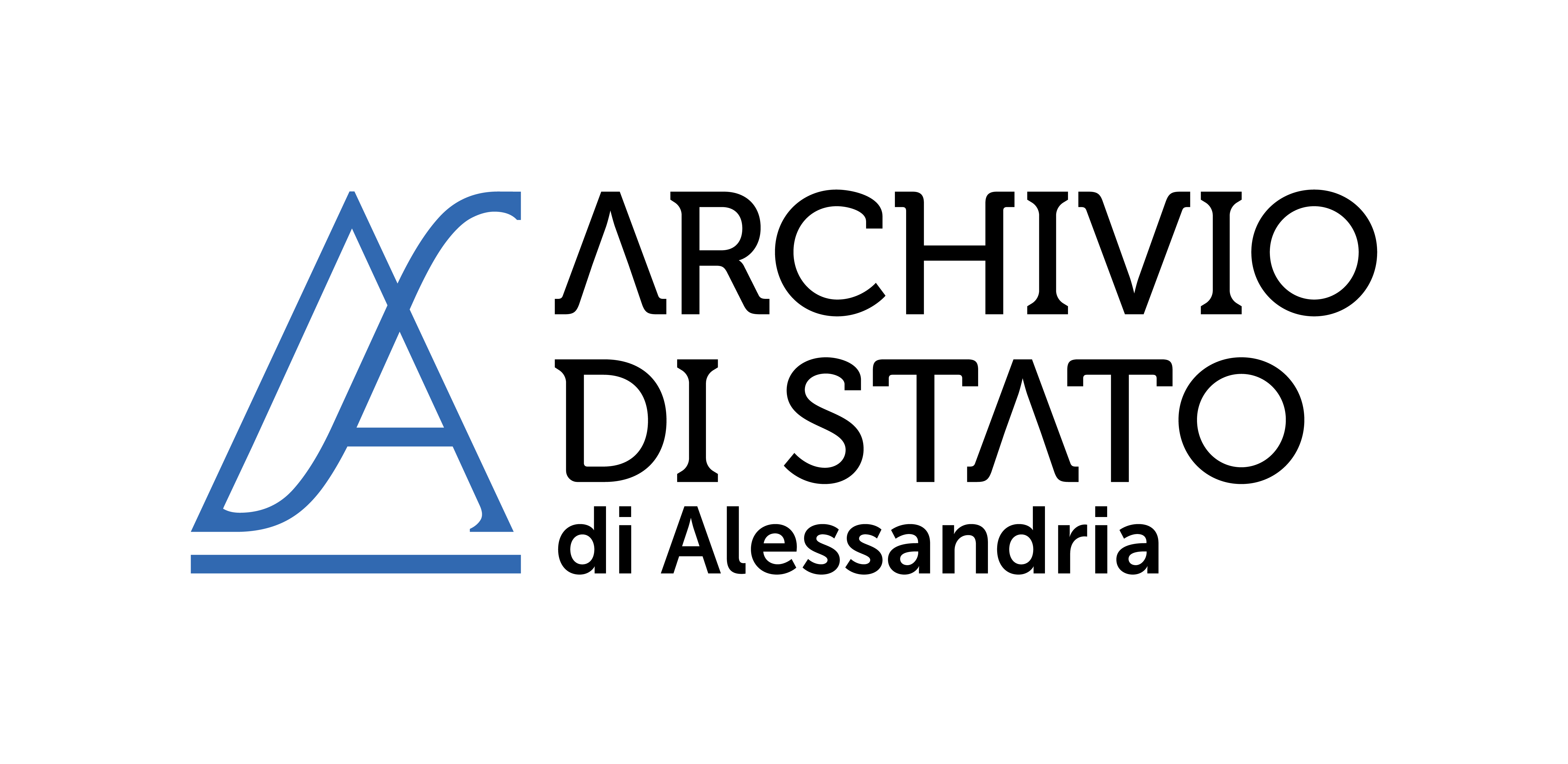The remote search service:
provides the digital reproduction of the document containing the requested information.
does not communicate the information from the documents.
foreword
The service of consulting the documents preserved in the State Archives is normally carried out in the study room, where users conduct their research after registration, viewing the inventories and requesting the archival units of interest. The archivist provides advice and scientific assistance to the public and to institutions for archival research, without taking the place of the user in carrying out the research, but supporting and guiding them in the use of the inventories and archival resources, as well as in the consultation of documents.
In order to facilitate the use of the documentation also by persons unable to travel to the headquarters, remote services are offered in addition to the study room functions.

What requests should be made?
remote archival assistance
The user may request more detailed information on the archival fonds and inventories than is already published on the institutional website or on the external portals where it is possible to access the documentary heritage of the Archive (see the section External portals where the Archive is present).
By e-mail addressed to:
remote computer reproduction of documents
The remote search service of the Alessandria State Archives cannot take charge of a search that does not provide precise data for finding documents (name and surname, year of birth, place of birth, etc.).
If the user cannot go to the study room but needs extensive research on matriculation rolls and conscription lists, he can turn to qualified professionals. If a reference is needed, the regional list held by the “Soprintendenza archivistica e bibliografica del Piemonte e della Valle d’Aosta” can be requested.
Each calendar year, the user may send ONE TO SIX REMOTE REQUESTS (i.e. one to six forms) for computer reproduction of a document using the following request forms:
The form should be printed, filled out in full, signed, scanned and sent in PDF format, with a copy of an identity document, to the e-mail address: as-al.salastudio@cultura.gov.it.
ATTENTION
- Only applications received in this manner and bearing forms completed in accordance with the instructions provided will be taken into account;
- forms in JPG format will not be considered.
The Archives undertake to always send notification of the outcome, whether positive or negative, of the examination of the documents.
Successful completion of the remote search entails payment for the digital copy according to the instructions that will be communicated by the Study Room staff on the basis of the fee schedule (available on the Forms page); the copy will be sent after collection.
Please note:
- there are gaps in the archival fonds, so the requested document may not be found;
- notarial acts after the 1920s are not kept at the State Archives but can be consulted at the District Notarial Archives (Alessandria, via Ghilini 42);
- Napoleonic civil status records and civil status records 1838-1865: only for the municipality of Alessandria and suburbs are available on the Antenati portal.
Below, in the form of answers to questions (FAQ), is some useful information:
FAQ – useful information
2. What can I do if I do not know my municipality of birth?
2a. How, in this case, can the exact place of birth be traced?
vai a Servizi offerti al Pubblico
vai a Home page
1. Does the Alessandria State Archives issue multilingual certificates for Italian citizenship applications?
NO.
The State Archives preserve the historical records of the offices of state administrations (including those of the pre-unification states) operating in their provincial territory.
The State Archives do not perform Italian civil status functions, do not issue birth, marriage, death certificates on multilingual models for Italian citizenship applications, and do not have electronic population registry databases that allow automated searches of people’s names.
The Italian civil status was established in 1866 and is the responsibility of the Italian municipalities, which must be contacted to receive multilingual forms for citizenship procedures.
For information on certificates, see the in-depth information on the Antenati portal.
To learn how to find your way around the various archives in the province of Alessandria, visit the page Genological research – useful information.
back to FAQ menu
2. What can I do if I do not know my municipality of birth?
It may happen that an ancestor, who emigrated abroad, has not accurately indicated his place of birth on the shipping registers or to the authorities of the foreign state. For example, the birth may have been declared generically in Italy or in Piedmont; sometimes the words “Alessandria” do not refer to the municipality but to the provincial territory. The problem of identifying the place is increased by the size of the province, which consists of just under 190 municipalities.
back to FAQ menu
2a. How, in this case, can the exact place of birth be traced?
A first useful tool is the Cognomix website, which in an interactive map represents the currently widespread surnames. Since it does not actually include the entire population and since it is not a scientific tool, this site is a rough means of research, but it can nevertheless provide a starting point and has proved useful to several users in tracing the origins of their ancestors.
One can then start by contacting the municipalities, parishes and dioceses where the surname is currently common, according to the periods illustrated in FAQ 7-11 on the page “Genealogical research – useful information“.
If father and mother are known, it is advisable to cross-reference the surnames of both parents to increase the chances of a successful search.
Another way is to search the conscription lists and rolls kept at the Alessandria State Archives. This research, however, must be carried out in the study room if the place of birth is not known, as it will be necessary to leaf through numerous registers of the various military districts in the province.
The remote search service of the Alessandria State Archives cannot take charge of a search that does not provide precise data for finding documents (name and surname, year of birth, place of birth, etc.).
If the user cannot go to the study room but needs extensive research on matriculation rolls and conscription lists, he can contact qualified professionals; if a reference is needed, the regional list can be obtained from the Archival and Bibliographic Superintendence of Piedmont and Valle d’Aosta.
back to FAQ menu
LIST OF LOCALITIES IN NAPOLEONIC CIVIL STATUS RECORDS FROM 1804-1814
Alessandria (and its suburbs/cantons, today’s hamlets of Cantalupo, Casalbagliano, Cascina Grossa, Castelceriolo, Castelferro- Municipality at the time, Lobbi, Mandrogne, Orti/Jardins in French, Portanuova, Retorto, San Giuliano Nuovo, San Giuliano Vecchio, Piana di San Michele, Spinetta Marengo, Valle delle Grazie/Valmadonna, Valle San Bartolomeo, Villa del Foro) Alluvioni Cambiò (today Alluvioni Piovera); Annone (today Castello d’Annone); Basaluzzo; Bassignana; Borgoratto; Bosco Marengo; Capriata d’Orba; Casal Cermelli; Cassine; Castelferro; Castellazzo Bormida; Castelspina; Cerro Tanaro; Felizzano; Frascaro; Fresonara; Frugarolo; Guazzora; Isola S. Antonio; Masio and Redabue; Montecastello; Oviglio; Pasturana; Pavone; Pecetto; Piovera and Rivellino (today Alluvioni Piovera); Predosa; Quargnento; Quattuordio; Sezzè (today Sezzadio); Solero; Valenza.
For research go to Ancestor Portal.
back to Remote Enquiries
LIST OF LOCALITIES (SUBURBS) IN CIVIL STATUS RECORDS FROM 1838-1865
Suburbs of Alessandria: Cantalupo, Casalbagliano, Cascinagrossa, Castelceriolo, Castelferro, Lobbi, Mandrogne, Orti, Portanuova, Retorto, San Giuliano Nuovo, San Giuliano Vecchio, Piana San Michele, Spinetta Marengo, Valle delle Grazie/Valmadonna, Valle San Bartolomeo, Villa del Foro.
For other municipalities in the province of Alessandria, please contact the municipal, diocesan and parish archives.
For research go to Ancestor Portal.
back to Remote Enquiries
CONSCRIPTION LIST APPLICATION FORM
ONLY ONE MUNICIPALITY OF BIRTH MUST BE INDICATED
ONLY ONE YEAR BETWEEN 1792* AND 1945 CAN BE CLAIMED
*Circumscriptions of Alessandria and Acqui Terme since 1792; Tortona since 1799; Novi Ligure since 1817; Casale Monferrato since 1830.
Please note:
the archival collection is deficient; several archival units, currently out of consultation due to their poor state of preservation, are awaiting restoration.
Form 04. Conscription Lists, request – available on the Forms page
Form B. Certificate of payment – available on the Forms page
back to Remote Request Forms
MATRICULATION ROLL REQUEST FORM
ONLY ONE MUNICIPALITY OF BIRTH MUST BE INDICATED
ONLY ONE YEAR BETWEEN 1865* AND 1950 CAN BE CLAIMED
*District of Casale Monferrato since 1865; Tortona since 1875; Alessandria since 1879.
Please note:
Military character sheets cannot be requested remotely.
The matricular rolls of the classes after 1950 are kept at the Turin Documental Office (cme_piemonte@esercito.difesa.it); those from 1975 onwards at the Genoa Documental Office (cme_liguria@esercito.difesa.it).
Form 05. Matriculation rolls – available on the Forms page
Form B. Certificate of payment – available on the Forms page
back to Remote Request Forms
DOCUMENT COPY REQUEST FORM
USABLE FOR DOCUMENTATION OF OTHER ARCHIVAL FONDS
INDICATE CERTAIN LOCATING DATA (ARCHIVAL SIGNATURE OR OTHER ELEMENTS ALLOWING TARGETED IDENTIFICATION)
For documentation from the Acqui and Ovada Revenue Office after 1980, the user must first contact the territorial offices of the same Agency (Acqui and Ovada), as this is administrative access, and then contact the Alessandria State Archives at as-al.salastudio@cultura.gov.it.
Notarial acts after the 1920s are not kept at the State Archives; they can be consulted at the District Notarial Archives (Alessandria, via Ghilini 42).
Form 06. Generic document – available on the Forms page
Form B. Certificate of payment – available on the Forms page
back to Remote Request Forms
vai a Servizi offerti al Pubblico
vai a Home page

